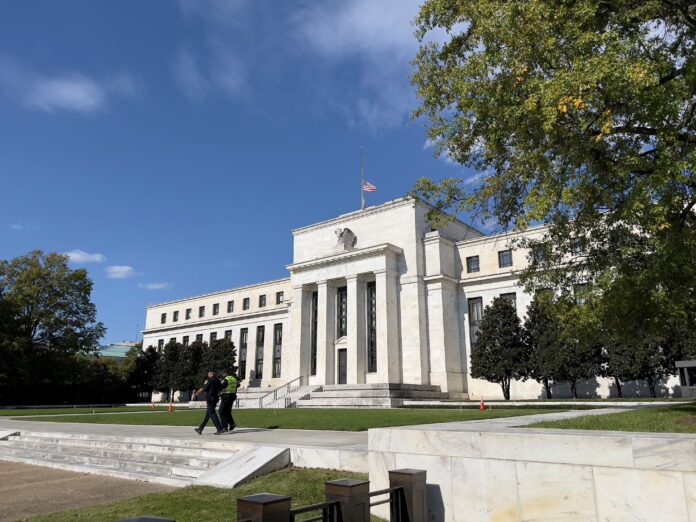The US budget deficit in the fiscal year 2021 recorded the second-highest deficit ever compared to $ 3.132 trillion recorded in 2020, where the deficit for 2021 reached $ 2.772 trillion.
Revenue jumped 18.3 percent to $ 4.046 trillion amid higher income taxes on individuals and businesses due to the economy’s recovery. In contrast, expenses rose by 4.1 percent to $6.818 trillion due to continued spending to counter the devastating effects of the global pandemic.
In September, the budget deficit hit $62 billion, compared to a $125 billion deficit a year earlier and market expectations of a $60 billion gap.
The smallest budget gap since January 2020, with revenue growing 23.1 percent to $460 billion while expenses only increased 4.7 percent to $521 billion.
Too early to raise US interest rates
Federal Reserve Chair Jerome Powell said it is early to increase borrowing rates risking slow economic recovery, in spite of a risk that high inflation in the United States could persist.
“it would be premature to actually tighten policy by raising rates now with the effect and intent of slowing job growth,” he said
Policymakers are forecast to proclaim the slowdown of bond buying at the central bank’s policy meeting next month. Still, the benchmark lending rate is forecast to continue at zero to the latest next year at the very least.
SAMA books $1bn net profit
Saudi Central Bank (SAMA) recorded a net profit of SR3.8 billion ($1 billion ) at the end of the quarter, above the same period last year, by 0.6 billion. More than the average analysts’ expectation on Refinitiv Eikon data of SR3.6 billion.
Russia raises interest rate
Russia’s central bank increased the key interest rate above what was expected by 75 bps to 7.5 percent, from a forecast of a 50 bps increase, the highest since June 2019. That increased in the rouble and signaled increases as inflation showed little sign of slowing.
Japan’s Inflation up slightly
Japanese inflation rose for the first time in 13 months to 0.2 percent annually in September 2021 from a negative 0.4 percent in August 2021.
Eurozone inflation hit by supply shocks
Significant supply chain problems in factories have caused prices to rise that they did not see in the Eurozone twenty years ago.

